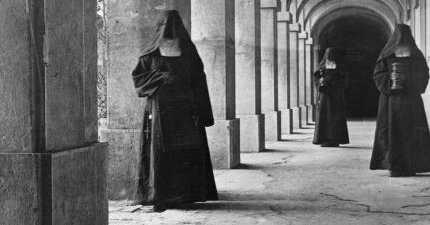
This has been a great year for historical fiction, which makes choosing a list of the 10 best even harder than usual. What to do? Opt for some personal favorites, arrange them alphabetically and wish the list were twice as long.
THE ART OF LOSING, by Alice Zeniter. Translated by Frank Wynne. (Farrar, Straus & Giroux, 448 pp., $28.) In this prizewinning French novel, a young Parisian attempts to reconnect with the Algeria that shaped and silenced her paternal grandfather.
CATHEDRAL, by Ben Hopkins. (Europa, 624 pp., $28.) A nimble mesh of intersecting plots that rest on the slow but not so steady, generations-long construction of an enormous church in medieval Alsace.
LIBERTIE, by Kaitlyn Greenidge. (Algonquin, 366 pp., $26.95.) In Reconstruction-era New York, the daughter of a Black female doctor struggles to reconcile her own independence with her mother’s deeply felt vocation, traveling all the way to Haiti before coming to a difficult resolution.
THE MAGICIAN, by Colm Toibin. (Scribner, 512 pp., $28.) A masterly evocation of the life and times of the great German writer Thomas Mann, showcasing his relations with his contentious family and his intensely private sexual yearnings.
MATRIX, by Lauren Groff. (Riverhead, 272 pp., $28.) In this novel inspired by the 12th-century poet Marie de France, an impoverished English nunnery is the setting for a stirring exploration of the many forms of devotion.
NORA, by Nuala O’Connor. (Harper Perennial, 496 pp., paper, $16.99.) A lively fictional rendition of Nora Barnacle, the minimally educated, blue-collar woman who propped up one of literature’s most challenging highbrow writers, James Joyce.
THE PROPHETS, by Robert Jones Jr. (Putnam, 396 pp., $27.) The emotional wounds of the inhabitants of a plantation in antebellum Mississippi are laid bare in a swirl of fiercely poetic prose, impelled by the dangerous bond shared by two enslaved men.
SEND FOR ME, by Lauren Fox. (Vintage, 272 pp., paper, $16.95.) A trove of letters discovered in the American Midwest reveals the agonizing experiences of a German Jewish family separated by the steady rise of Nazism.
THE SINGING FOREST, by Judith McCormack. (Biblioasis, 302 pp., paper, $16.95.) A young lawyer in present-day Toronto grapples with the moral reckoning of war crimes as she probes a mass murder committed by Stalin’s security police in 1930s Belarus.
TENDERNESS, by Alison MacLeod. (Bloomsbury, 640 pp., $29.) This ambitious blend of research, guesswork and fabrication is centered on the creation and reception of D.H. Lawrence’s controversial novel “Lady Chatterley’s Lover.”
Alida Becker is a former editor at the Book Review.




